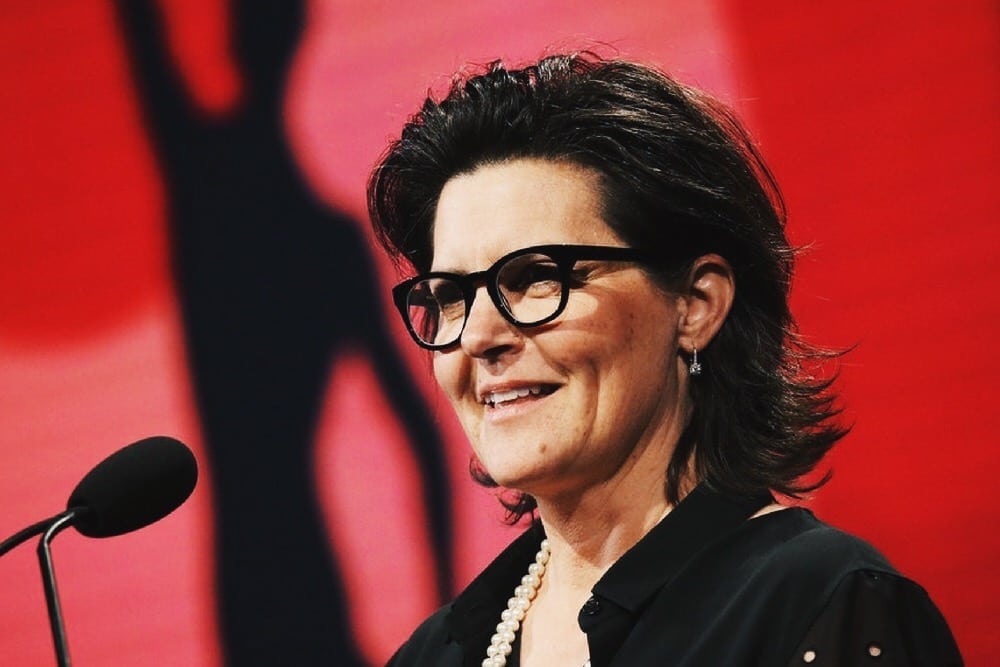At 32 I was an assistant coach for the women’s basketball team at a major university. I was making 6-figures with a company car, coaching the sport I loved and had just rented a cute little townhouse with a loft.
Everything started out amazing.
But as time went on, I realized my boss and I weren’t there for the same reasons. I was there to help girls grow into young women through basketball. And he was there because he couldn’t get a men’s coaching job anywhere else.
We constantly butted heads over what was best for the girls.
It wasn’t all his fault though. With it being my first major coaching job, I struggled with the constraints and propriety of being a high-profile coach. It felt like I wasn’t allowed to be an actual person – just a coach – and that definitely wasn’t ok with me.
The day I got fired I knew it was going to happen.
After being on his staff for two years, he called me into his office and said, “This isn’t working for me.” To which I answered, “Let’s be honest. This isn’t working for either of us.”
What I didn’t tell him was that my office had been packed up since December – it was April – and I had already been on two job interviews.
Our conversation ended when he told me they would pay out the last four months of my contract but not to worry about coming back into the office.
The funny thing was, even though I was planning on quitting as soon as I got another job, I was still embarrassed that he fired me.
It’s like when someone you don’t really like breaks up with you and you’re like, “Wait, what was wrong with me though?!” And you have to remind yourself that you didn’t really like him anyway! Lol.
(I can’t be the only one that’s ever happened to, right?)
Getting fired was embarrassing because people automatically assume it’s because you weren’t good enough to do what you were hired to do. And that wasn’t the case – I was really good at my job, humbly speaking.
But once I talked myself out of my feelings and went through the process of finding my next job, I realized that I actually learned some really good lessons from getting fired.
So here they are.
1. Fit matters just as much as competence.
Before I took the coaching job, I never had to worry about fit before. I played basketball for a living and while team fit is important, it’s all the same job and it always fit who I was.
When I interviewed for the coaching job, I figured it’d be the same. I asked questions about my responsibilities and the qualifications needed, but not about ideals, motivations and goals. I mean, how different could they be?
The answer is, VERY DIFFERENT. The “why” and the goals always matter and need to be clarified!
The organizations goals and the goals of your boss don’t have to be the exact same as yours, but they can’t contradict yours either. Because at some point you’re going to feel like you’re compromising who you are for what you do, which one, sucks, and two, isn’t a long-term formula for success.
Never discount how well a job fits you just because you have the ability to do it.
2. Leverage every connection.
When I was looking for a new job one piece of advice my recruiter gave me was to leverage every connection. So during my first interview, I asked the guy who would eventually be my boss if there was anyone else I could call to learn more about the job.
I called both numbers he gave me and at the end of each phone call, I asked them the same question. By the time the 3-week interview process was over, I had talked to 10 different people within the company about the industry, and my job specifically.
After I was hired, my boss told me that several of them had reached out to him on their own and recommended me. Not just because of the conversations we had but because I had been bold enough to call them even before I was hired.
That’s the thing about leverage: You never know which person will go out of their way to help you. But the more people you have trying to move the needle in your favor, the more likely it’ll happen. Don’t be afraid to ask each connection for another contact point.
3. Transferable skills always transfer.
Success has a fingerprint. When you’ve built skills in one role, you’ll always have them to use in your next one. The job I ended up getting was in medical device sales, which has nothing to do with college basketball, on the surface.
But as a coach, a huge part of my job was recruiting. Recruiting involves managing a territory, cold-calling, building relationships quickly and persuading someone to choose you over the competition. When you break it down to the skills needed, it sounds exactly like sales!
Whenever you’re trying to change jobs, roles or even industries, it’s important to know which skills you already have that you can bring with you. And equally important is your ability to communicate those transferrable skills to the person hiring you.
Draw the parallels for them between what you’ve already done and what they need you to do.
4. Confidence can get you a job over experience.
When I was interviewing for med sales, there were two times that confidence trumped experience.
In the first interview process after spending a day with the sales rep visiting his accounts, he said, “You’re great. But you don’t have any experience. How do I know you can do this job?”
And I told him, “Tom, when I was coming out of high school, there were two coaches who didn’t recruit me: The coach at Old Dominion and the legendary Pat Summitt from Tennessee. So when I went to Vanderbilt it was my goal to make Pat wish she had recruited me every time we played. And at the end of 4 years she said I was one of the best post players she’d ever seen.
Tom, I can count on one hand the people who haven’t believed in me and I’ve proven every single one of them wrong. Just let me know if I should add you to that list.”
He offered me the job shortly after.
The second time was when I was interviewing for Stryker – the job I eventually took. My future manager said, “You have no idea what you’re getting yourself into so what makes you think you can do this job with no experience.”
And I told him, “You’re right. I don’t know exactly what I’m getting myself into. But I’m smart, I work hard and I have all the skills you can’t teach.”
2 ½ weeks later, after my last round of interviews, I got the call in the Detroit airport that I was hired.
Confidence will open doors that experience alone can’t. So whatever you have to do to build confidence, do it.
Like what you’re reading? Access HER magazine’s monthly publication in iTunes or Google Play – it’s where we feature powerhouse women you can learn from and share exclusive content you won’t find here.







